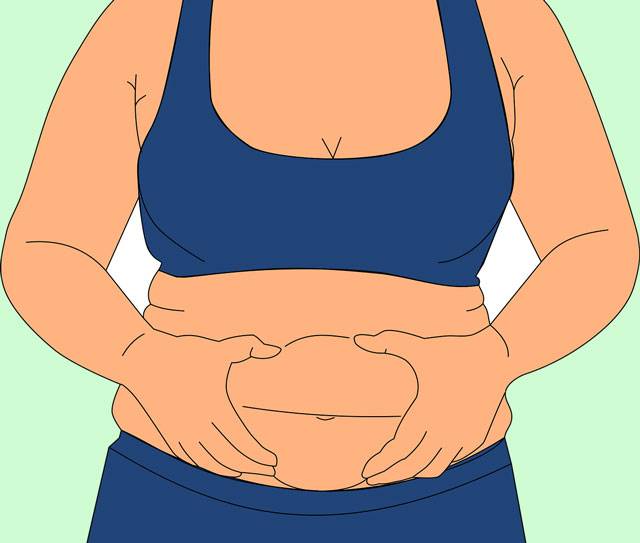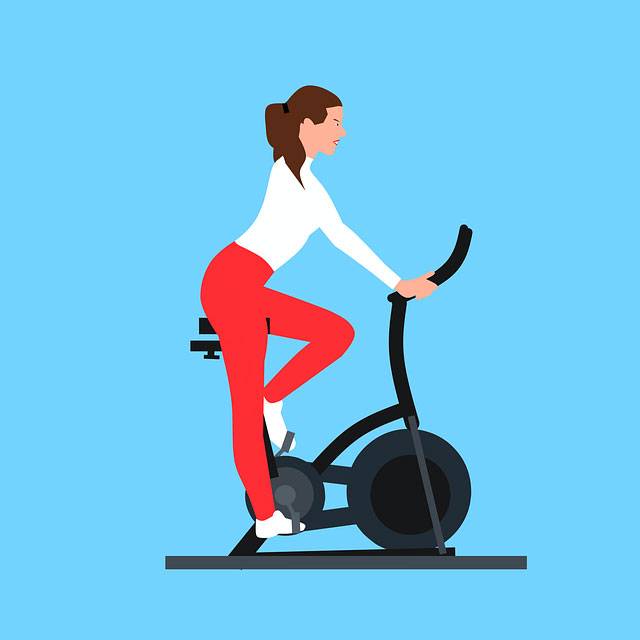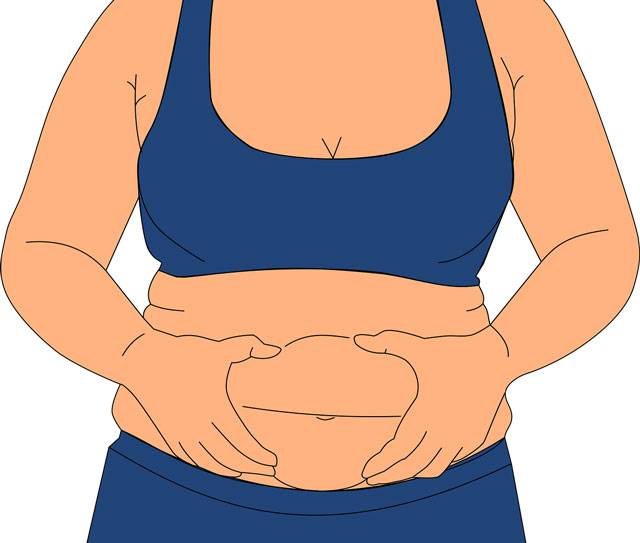
Energy balance does work for weight loss when properly applied, but it may not seem to work for some individuals due to certain factors.
The concept of energy balance is simple: to lose weight, you need to create a calorie deficit by consuming fewer calories than your body burns. This is a negative energy balance.
When you consistently maintain a calorie deficit, your body starts using its stored energy (primarily fat) to meet its energy needs, leading to weight loss over time.
This article might be helpful – What Is Energy Balance In Weight Loss?
Energy Balance In Nutrition
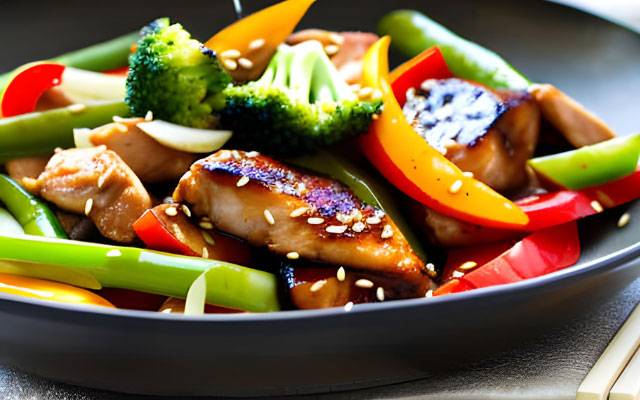
Here are some factors where energy balance may not appear to work for weight loss:
- Inaccurate Tracking: Some people may not accurately track their calorie intake, or may underestimate the calories they consume. This can lead to unintentional overeating, preventing the creation of a calorie deficit.
- Mindless Eating: Mindless eating, such as eating while distracted or emotional eating, can lead to consuming more calories than intended, sabotaging weight loss efforts. Once again in a calorie surplus or positive energy balance.
- Hidden Calories: Some foods and beverages may contain hidden calories, such as high-calorie sauces or dressings, leading to an unintended increase in calorie intake. Pop sodas, juices, smoothies, energy drinks can have a lot of calories that people are unaware of.
- Metabolic Factors: Individual metabolic variations can affect how efficiently the body burns calories. Some people naturally have a slower metabolic rate, making it easier for them to gain weight and harder to lose it.
- Plateau Effect: Initially, people may experience weight loss with energy balance, but after some time, their weight may plateau. This happens as the body adapts to the lower calorie intake, and weight loss slows down.
- Muscle Loss: In some cases, strict calorie restriction without proper attention to nutrition and exercise may result in muscle loss, affecting overall weight loss progress.
- Water Retention: Temporary water retention, often due to changes in diet or exercise, can mask actual weight loss on the scale, leading to frustration.
- Stress and Hormones: High stress levels and hormonal imbalances can impact weight loss efforts by affecting appetite and metabolism.
Seek professional guidance from a doctor or dietician for any medical concerns regarding to weight loss and diets.
How To Make Energy Balance Work In Weight Loss
To overcome these challenges and make energy balance work effectively for weight loss:
- Keep a detailed food diary to accurately track calorie intake. Apps like MyFitnessPal are a popular calorie tracker.
- Be mindful of portion sizes and choose nutrient-dense, whole foods.
- Incorporate regular physical activity to boost calorie expenditure and preserve muscle mass. Depending on you calories, weight training is a great way to build / maintain / minimize muscle mass loss.
- Set realistic and sustainable weight loss goals.
- Eat lean proteins as well as protein helps preserve muscle mass when dieting. It also can make you feel fuller.
Ultimately, successful weight loss requires a comprehensive approach that addresses not only energy balance but also lifestyle habits, nutrition, and overall well-being.
You might also be interested in this article – CICO For Weight Loss
FAQs
What to do when nothing works for weight loss?
The energy balance is scientifically proven method that works, but weight loss does slow down and plateaus occur.
As your body weight gets lower, what once was a calorie deficit, might now become a maintenance phase. This happens as you adapt to the lower calorie intake, and even more so if you lose a lot of muscle mass as well.
This is another reason why exercise like weight training is helpful to preserve muscle mass.
If you’re not seeing results with weight loss despite your efforts, consider reassessing your approach.
Double check your calorie intake for the day. Sometimes you have to adjust your new calorie intake to match your new needs.
Another reason could be your scales and fluctuations in bodyweight.
Weight scales aren’t one hundred percent accurate, and your body weight fluctuates day to day. Try weighing yourself just two to three times a week. See if the bodyweight is going down over several days, not just day to day.
If the weight scales aren’t moving, but you are looking good in the mirror, you might have put on some muscle. Don’t be too reliant on just the scales.
Consult with a registered dietitian or healthcare professional to evaluate your current plan, make necessary adjustments, and identify any underlying factors hindering your progress.
19 Reasons Why Diets Fail: What To Look Out For
How does fat loss occur?
Weight loss occurs when there is a negative energy balance. Meaning you consume fewer calories than your body burns.
When energy intake is lower than energy expenditure, the body taps into its energy stores (fat) for fuel, leading to fat loss and overall weight loss.
Does losing weight involve a negative energy balance?
Yes, losing weight involves creating a negative energy balance, which requires consuming fewer calories than your body expends. This deficit leads to weight loss as the body uses stored energy to make up for the shortfall.
How do you shift energy balance to weight loss?
To shift energy balance to weight loss, focus on reducing calorie intake through a balanced and nutritious diet, and increase energy expenditure through regular physical activity.
Creating a modest calorie deficit will promote gradual and sustainable weight loss.
Why is my body not responding to weight loss?
Several factors could be contributing to your body’s resistance to weight loss, such as inaccuracies in calorie tracking, hidden calorie sources, lack of sleep, etc.
This article might also be helpful – Bad Habits For Weight Loss
Why am I not losing weight even after a calorie deficit and exercise?
Not losing weight despite a calorie deficit and exercise could be due to various factors, such as water retention, changes in muscle mass, fluctuations in daily weight, or inaccuracies in calorie tracking.
If you are looking better in the mirror, or your dress size or belt size is dropping, but the weight scales aren’t going down, don’t be too concerned about the reading.
If you are weight training or haven’t done much exercise before, you might be losing body fat, but at the same time putting on a bit of muscle. This can give you a confusing reading from the weight scales.
Sometimes it pays to ditch the scales and use the mirror and if the clothes are getting looser as a gauge.
Reassess your recommended daily calories, with your new bodyweight.
How to lose 10kg in 1 month without exercise?
Losing 10kg in one month without exercise is generally not recommended, as rapid weight loss can be unsafe and unsustainable. It’s essential to focus on a balanced diet and include physical activity for a healthier and more sustainable approach to weight loss.
Why am I not losing weight on 16/8 fasting?
Intermittent fasting, such as the 16/8 method, will not lead to weight loss if you are consuming too many calories during your eating window or compensating by overeating during the fasting period.
The energy balance principle still comes into play, regardless if you are fasting. Or even if you are doing Keto, Paleo, low carb, low fat, celebrity diet, Atkins, TikTok diet, etc.
See also – What Is Fasting For Weight Loss
Why am I gaining weight while eating healthy and exercising?
Gaining weight while eating healthy and exercising may occur if you are consuming more calories than you burn, even with nutritious choices. It’s essential to pay attention to portion sizes and overall calorie intake.
Healthy eating is very important to get a wide range of fruits, vegetables, healthy fats, wholegrains, dairy and lean meats in our diet.
However, if we want to lose weight, we have to be in a calorie deficit and watch our overall daily calories. So some foods we might have to limit in size or frequency of meals.
As an example, avocados, olive oil, nuts, cheese, etc. can be very healthy in moderation, but can also be high in calories.
So even though you might be eating healthy, there may be too many calories and you are in a caloric surplus, not a deficit.
Why am I gaining weight while dieting and exercising?
Gaining weight while dieting and exercising could be a result of muscle gain, water retention, or fluctuations in body weight. It’s also possible that you may not be in as much of a calorie deficit as you think as mentioned above.
Can eating too little cause weight gain?
Eating too little for an extended period can lead to a reduced metabolic rate, loss of muscle mass, and hormonal imbalances, which may hinder your weight loss efforts.
How to speed up metabolism?
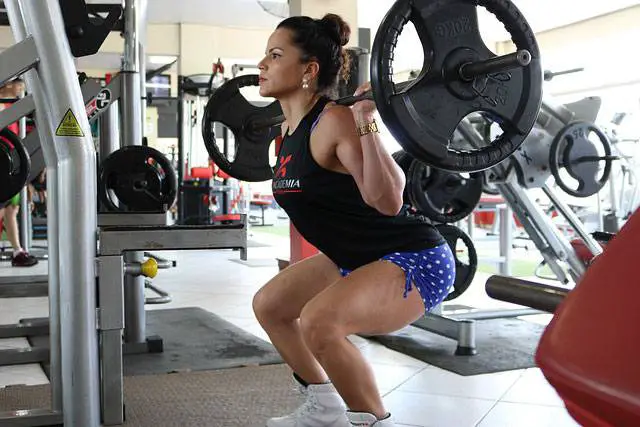
You can potentially boost your metabolism by engaging in regular physical activity, eating protein-rich foods, staying hydrated, getting enough sleep, and avoiding crash diets or extreme caloric restrictions.
Exercise like weight training can help as you are minimizing muscle mass loss when on a diet. You might even put some muscle on, which helps your metabolism.
Low impact exercises like the stationary bike can also help burn some more calories. – Exercise Bike Tips
Conclusion
Energy balance does indeed work for weight loss when correctly applied.
The principle of creating a calorie deficit by consuming fewer calories than the body burns remains a fundamental and scientifically proven method for achieving weight loss.
However, individuals may face challenges and frustrations when trying to lose weight through energy balance due to various factors. Inaccurate calorie tracking, mindless eating, metabolic variations and plateau effects, are among the reasons why energy balance may appear to be ineffective for some people.
It is essential to address these obstacles, adopt a sustainable approach to fat loss.
Remember, successful weight loss is not solely about the numbers on the scale but also about adopting healthier habits, managing stress, prioritizing sleep, and focusing on overall well-being.
By combining a balanced diet, regular physical activity, and consistent tracking of calorie intake and expenditure, individuals can harness the power of energy balance and achieve their weight loss goals effectively and safely.
Resources, References, Information And Recommended Reading
What Snacks Are High In Protein?
How To Easily Add More Vegetables To Your Diet
Fat Loss Forever, How To Lose Fat and Keep It Off. By Peter Baker and Layne Norton PH.D
The Renaissance Diet, A Scientific Approach to Getting Leaner and Building Muscle. By Dr. Mike Israetel, with Dr. Jen Case and Dr. James Hoffman.
Specialist in Fitness Nutrition. John Berardi, PH.D and Ryan Andrews, MS/MA, RD.
The Muscle and Strength Nutrition Pyramid. By Eric Helms.
Burn The Fat Feed The Muscle. By Tom Venuto.
The Ultimate Volumetrics Diet. By Barbara Rolls, Ph.D. with Mandy Herman, R.D.
The Fast Diet. Dr Michael Mosley and Mimi Spencer.
The Fat Loss Prescription. By Dr. Spencer Nadolsky.
The 8 Hour Diet. By David Zinczenko, with Peter Morse.
The CSIRO Total Wellbeing Diet. By Dr. Manny Noakes with Dr Peter Clifton.
Science and Development of Muscle Hypertrophy. By Brad Schoenfeld.
Bigger Leaner Stronger. By Michael Mathews.
Thinner Leaner Stronger. By Michael Mathews.
Advanced Sports Nutrition. By Dan Benardot, PHD, RD, FACSAM.
The Hungry Brain. By Stephan J. Guyenet, PHD.
Eat Stop Eat. By Brad Pilon.
Mens Health, The Lean Muscle Diet. Lou Schuler and Alan Aragon, MS.
Body for Life. By Bill Phillips and Michael D,orso.
The Lean Gains Method. By Martin Berkhan.
The Complete Guide To Fasting. Jason Fung and Jimmy More.

